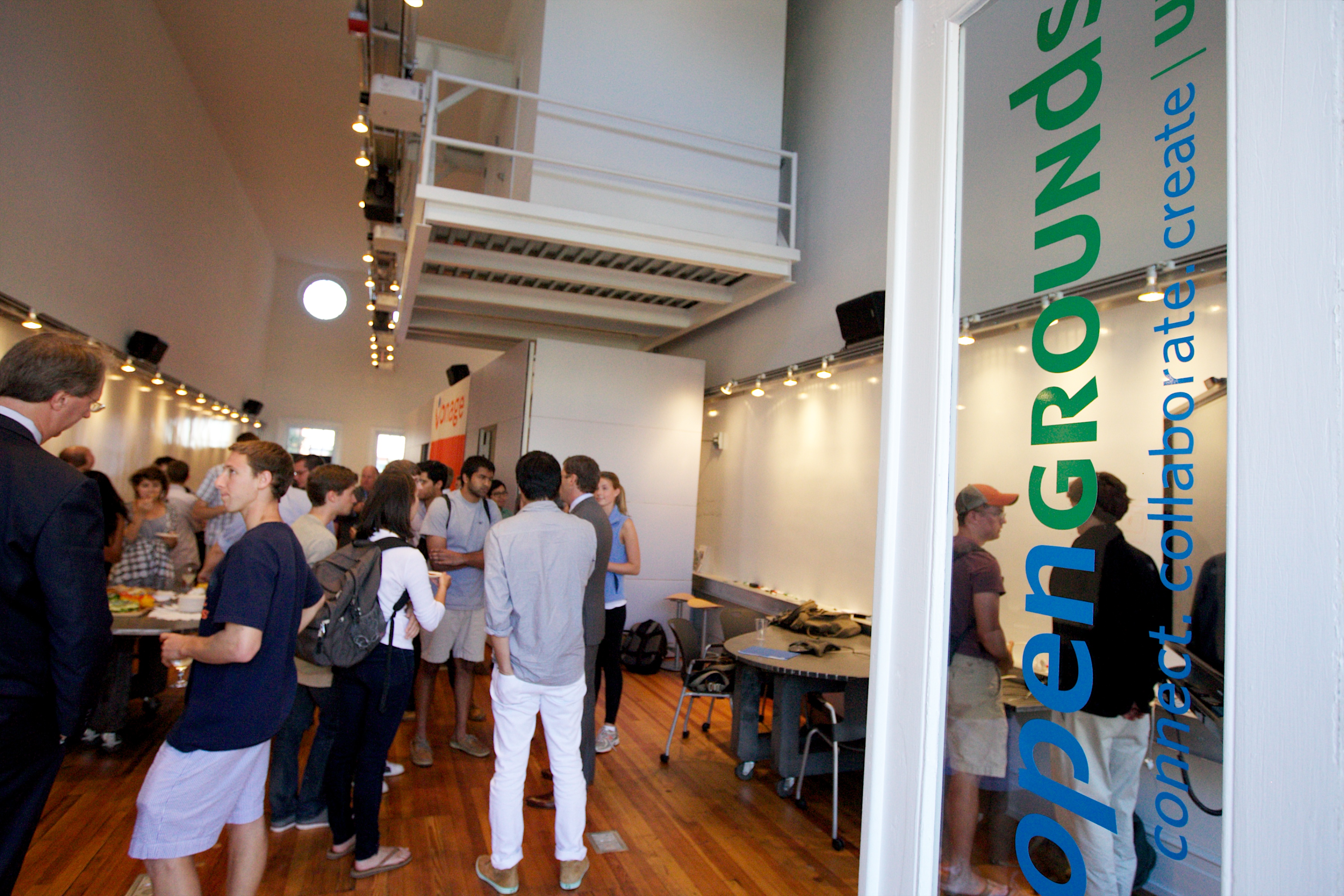Increases in the cost of care and the prevalence of preventable chronic conditions are only a few of the complexities of health and health care in the United States today. These challenges present an opportunity for the University of Virginia’s most innovative thinkers to develop new approaches aimed at lowering health care costs and improving overall health.
On Friday, OpenGrounds will launch its next “OpenGrounds Challenge” in partnership with Hearst Business Media. The Challenge asks the University’s students to imagine ways to help people make better choices about their own health.
Undergraduates, graduate students and post-docs from all schools and disciplines will be invited to imagine the games, biometric devices, clinical tools and social networks that could drive people to be accountable for their own health and live disease-free.
Proposals may include concepts ranging from building health awareness to monitoring specific conditions, diseases or general fitness, to making nutritional, exercise, environmental and educational choices.
First, second and third prizes of $15,000, $7,000 and $3,000, respectively, will be awarded to students who come up with the most innovative ideas to build a healthier society.
Submissions for proposals are due Oct. 11, and finalists will make presentations to a panel of judges on Nov. 18. Details regarding the Hearst Challenge are available here.
“OpenGrounds was created to generate new ideas that will make a difference, connecting people and inspiring action across boundaries within and beyond the University,” said Bill Sherman, founding director of OpenGrounds and professor of architecture at the U.Va. School of Architecture. “The Hearst Challenge applies the creative capacity of our students to a critical societal need.”
The partnership between OpenGrounds and Hearst began with a Design Gathering in 2010 that brought Hearst executives together with U.Va. faculty to work creatively on challenges ranging from telemedicine and medical records to health access and communications.
Faculty from architecture, medicine, sciences, engineering and nursing collaborated with Hearst leadership to develop techniques for diagramming ideas, participate in role-modeling simulations and brainstorm sessions. This engagement laid the foundation for this fall’s competition.
Hearst is hoping to learn more about how young people think about their own health and make decisions about it. OpenGrounds and Hearst developed a survey that will be launched on Friday in order to gain insight into college-age attitudes toward health and health care. This survey will provide a common information resource for those involved in the competition, as well as a window into the beliefs, practices and motivations of the age group.
“The U.S. has tremendous challenges to overcome in health care and in the health of our population in general,” said Rich Malloch, the president and group head of Hearst Business Media. “We are interested in fostering innovative thinking for improving health and lowering costs.”
“The collaboration exemplifies the way OpenGrounds works with institutional and corporate partners to provide new opportunities for students and faculty to develop novel approaches to complex problems,” Sherman said. “Through corporate challenges, industry partners are able to break out of conventional thinking and engage the creativity of U.Va. students with new insights and disruptive approaches to pressing societal issues.”
Last fall, Vonage, a leading telecommunications firm, sponsored the inaugural OpenGrounds Challenge, which asked students to imagine the next evolution of social messaging.
Media Contact
Article Information
September 11, 2013
/content/students-asked-propose-paths-better-health-and-health-care-part-uva-opengrounds-hearst

